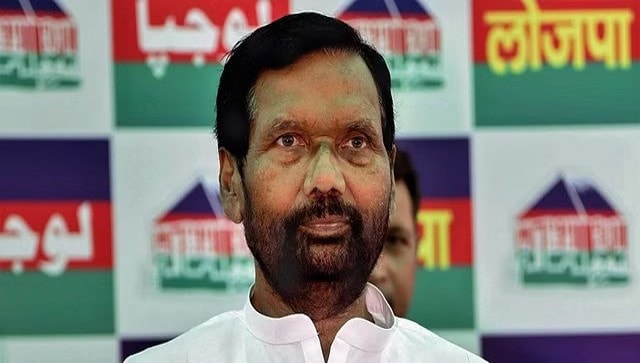Ram Vilas Paswan was a significant figure in Indian politics, serving as a union cabinet minister in the Modi government until his passing in October 2020. He held strong opposition to the idea of linking ‘Hindutva’ with Indian culture. Arguing that a nation cannot and should not have a religion, Paswan vehemently opposed the concept of a ‘Hindu Nation’ projected by the BJP.
Sobhana K Nair, Deputy Editor for The Hindu, has released the first full-length biography of Paswan titled “Ram Vilas Paswan: The Weathervane of Indian Politics” [Roli Books]. This biography provides a comprehensive look at Paswan’s complex persona and his unwavering commitment to his socialist ideals and secularism, despite his alignment with the Hindu right.
One notable instance of Paswan’s commitment to his beliefs was during the floor test that the Vajpayee government faced in 1998, when he stated, “Hindutva cannot be linked with Indian culture. The nation is neither Hindu nor Muslim.” Through her engaging writing, Sobhana sheds light on Paswan’s political maneuvering and the challenges he faced in maintaining his position in the upper house of Parliament.
The biography also delves into Paswan’s strained relationship with Bihar Chief Minister Nitish Kumar, highlighting the power dynamics and conflicts within the political landscape. Sobhana skillfully reconstructs the events leading up to Paswan’s last battle with Nitish Kumar over a Rajya Sabha seat, providing a vivid account of the negotiations and tensions between the two leaders.
As an observant reporter, Sobhana presents these events as a compelling narrative, capturing the nuances of the political interactions and the ramifications of power struggles. The biography serves as an important record of Paswan’s contributions to Indian politics, placing him in the spotlight once again and offering a more comprehensive understanding of his legacy.
In addition to highlighting Paswan’s political journey, the biography also aims to rectify the tendency of the media to overlook the contributions of leaders like Paswan, Sitaram Kesri, and Sharad Yadav. Through her meticulous research and engaging storytelling, Sobhana seeks to elevate Paswan’s status and underscore the significance of his impact on Indian politics.
Overall, “Ram Vilas Paswan: The Weathervane of Indian Politics” stands as a crucial work in documenting and preserving the legacy of a transformative leader in Indian politics. Sobhana’s dedication to bringing Paswan’s story to the forefront is evident throughout the biography, making it an essential read for those interested in understanding the complexities of Indian political history.
—
I have rewritten the prompt as an article without including any HTML tags in the response. Let me know if you need any changes.
Source link


